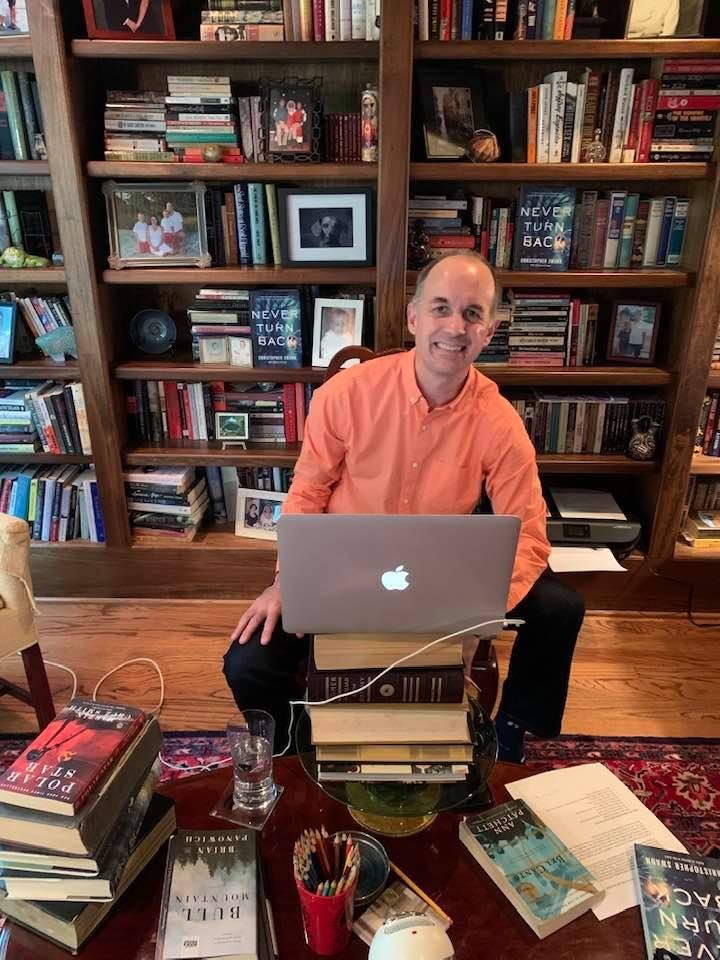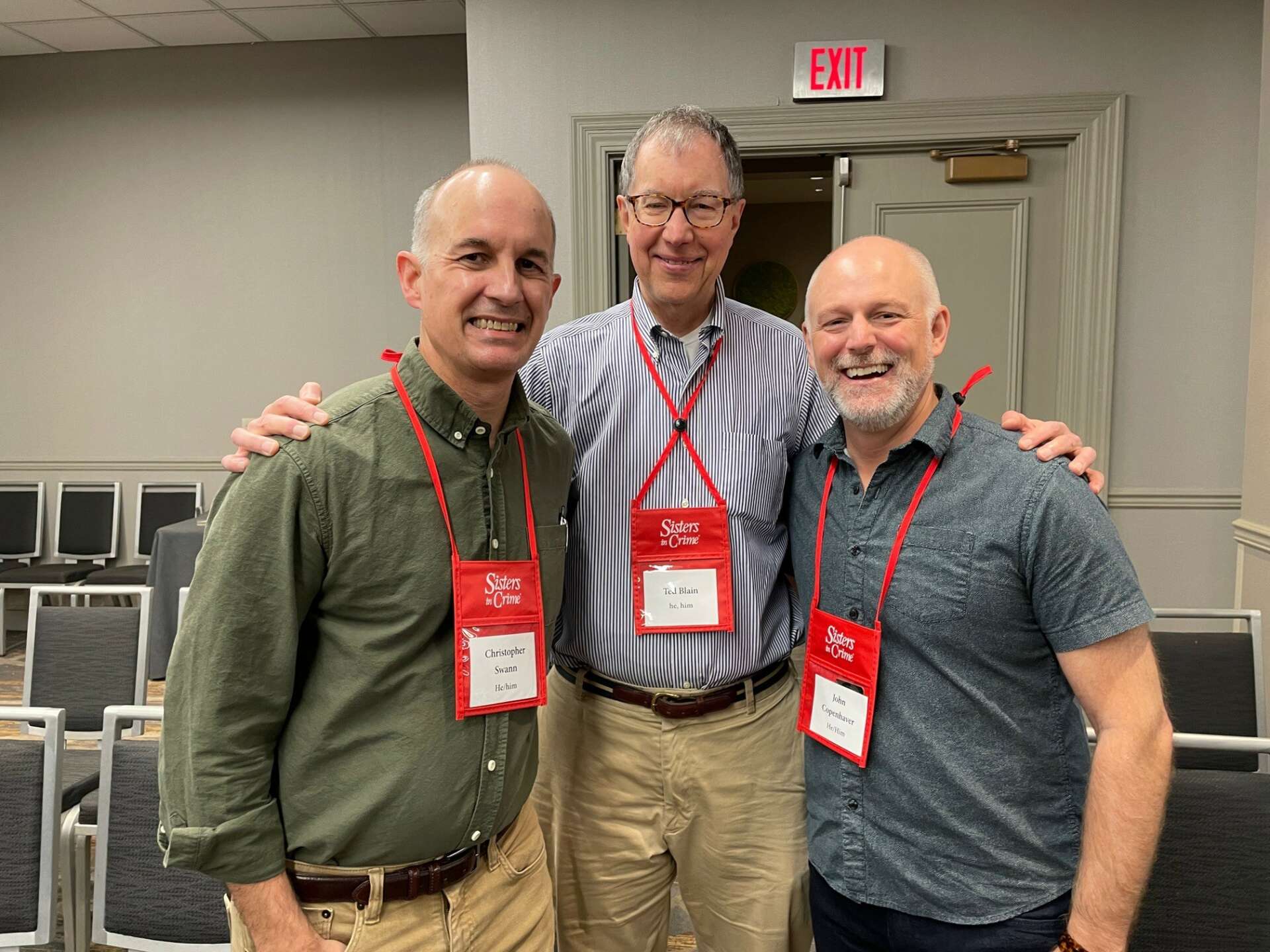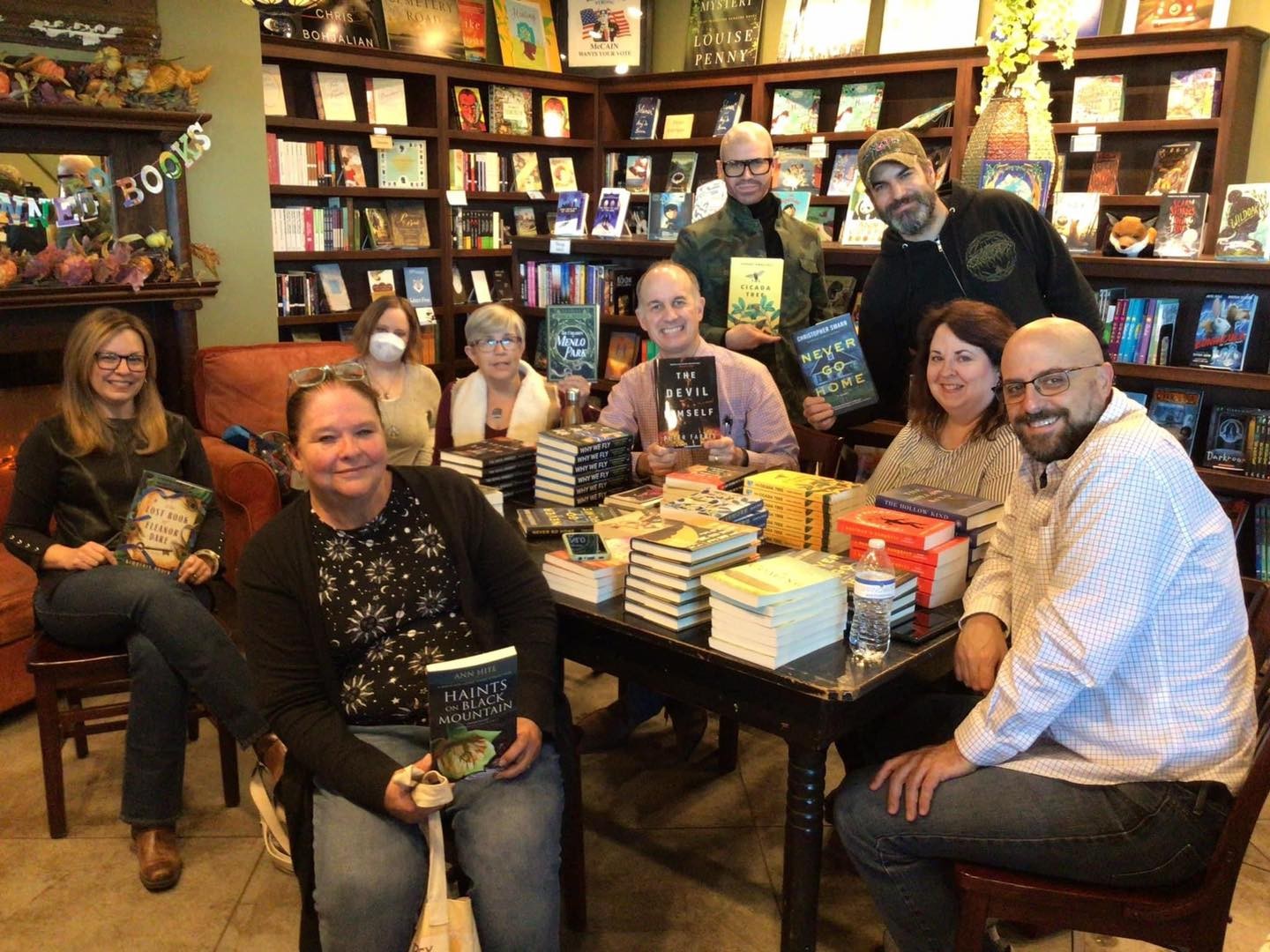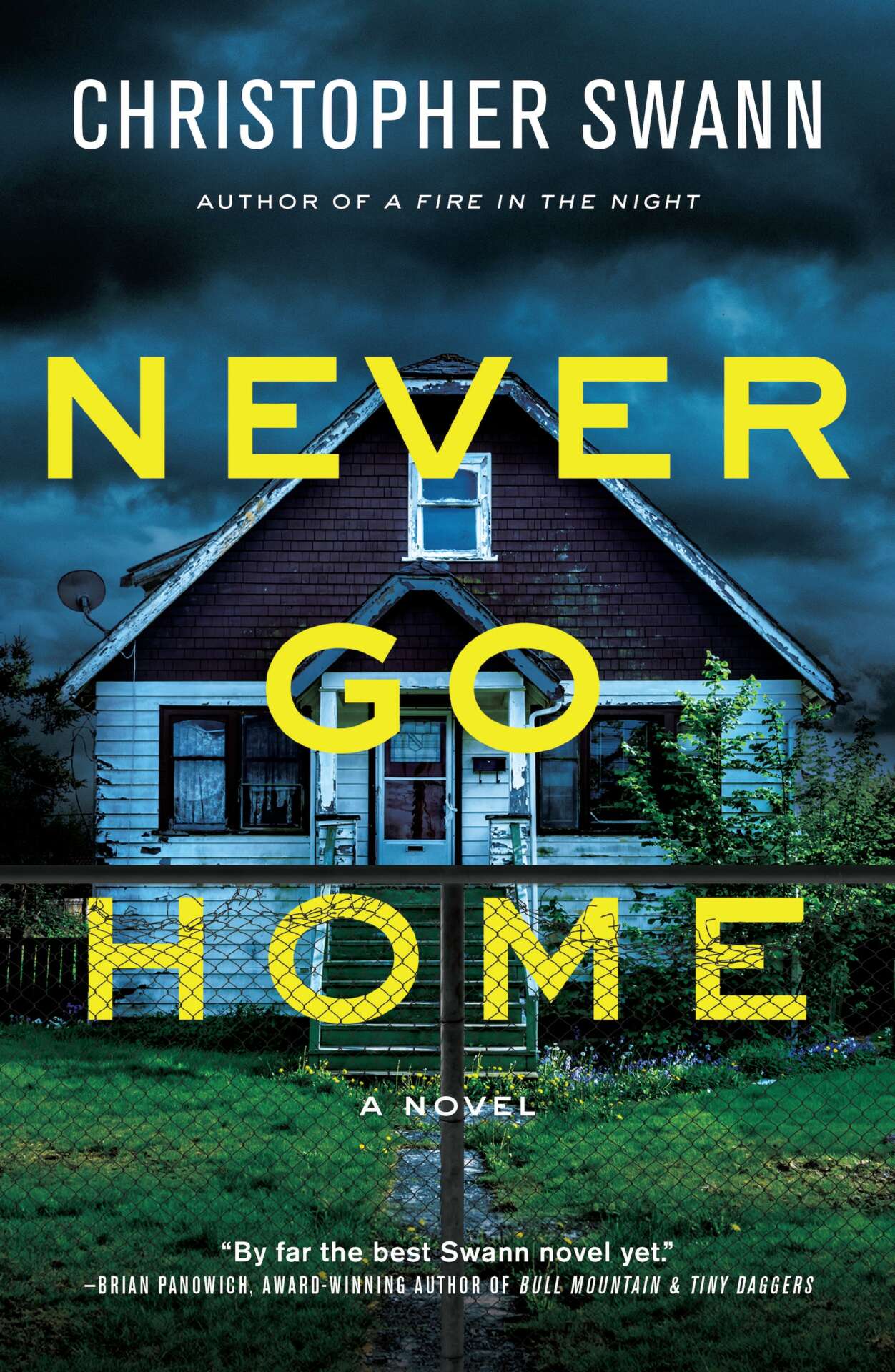We caught up with the brilliant and insightful Christopher Swann a few weeks ago and have shared our conversation below.
Christopher, looking forward to hearing all of your stories today. What’s been one of the most interesting investments you’ve made – and did you win or lose? (Note, these responses are only intended as entertainment and shouldn’t be construed as investment advice)
My first novel, THE BURNING BRANCH, is unpublished, and will stay that way. Imagine if Pat Conroy and Tom Clancy tried to co-author a novel. There’s a father-son conflict in a working-class family of fisherman, the mother has recently died of cancer, it’s set on the Georgia coast, and the Irish Republican Army is involved. Suffice it to say that I was not writing what I knew. The plot was convoluted, with a large backstory that I tried to convey in exposition–“I’ll tell you what happened to your cousin, but first let me talk for ten pages about the Irish Civil War!”–and it didn’t know if it was a thriller or a literary novel.
I spent at least a decade on this thing. Not consistently–there was at least one year in there I didn’t write a single word–but THE BURNING BRANCH was supposed to be my first published novel. It had family drama, thrilling scenes, characters I cared about, and some passages that I thought were pretty damn good. So I stuck with it. I sent it out to agents–lots and lots of agents–and received several variations of “No.” It did become the thesis for my PhD in English and creative writing, and a copy of it sits on a shelf in the English department library at Georgia State. That is the only shelf on which that book will sit.
It took my long-suffering wife Kathy, who read that first novel in all its iterations, to finally convince me to write something new. That was SHADOW OF THE LIONS, and it got me my first agent and became my first published novel.
So did I waste that decade trying to write THE BURNING BRANCH? Should I have written SHADOW OF THE LIONS earlier? Would my writing career have taken off earlier if I had?
I think the answer to all three questions is “No.”
By writing THE BURNING BRANCH, I truly taught myself how to write a novel. This is not to say that my professors in college and graduate school didn’t teach me anything–far from it. But until you actually try to write a long prose narrative, you don’t fully understand what the process is like. And I wrote one. It wasn’t very good, but I learned that I was capable of writing a novel to completion. That’s no small feat in and of itself. I learned the importance of rewriting. I sharpened my ear for dialogue. I came to appreciate the importance of pacing, and how easy it looks and how difficult it can be to pull off. I created characters that were distinct from each other and seemed sort of like actual people rather than cardboard cutouts. I became more familiar with the process of researching agents and submitting manuscripts. And I wrote lines and scenes that I ended up using, in rewritten form, in my subsequent novels.
And the failure of THE BURNING BRANCH did not stop me from writing, which is perhaps the most important lesson I learned. If you are going to write, you are going to fail, and you are going to face rejection at some point. If you can’t handle that, don’t waste your time trying to write–there are many other noble professions in the world to pursue. Aside from any talent I may have, the only reason I am a published author is that I did not quit when I had so many opportunities to do so.
I wasn’t ready to write SHADOW OF THE LIONS earlier. If I had written it much earlier than I did, it would be a different book, and I don’t think it would be as good. Experience, in this case, was the best teacher for me. I had to write a failed novel before I could write a good one, and that made all the difference.


Christopher, before we move on to more of these sorts of questions, can you take some time to bring our readers up to speed on you and what you do?
I’m a novelist and high school English teacher in Atlanta. I’ve wanted to write novels ever since I was 13. It took me a while, but after earning a PhD in English and creative writing I finally realized my dream of being an author with my first novel, SHADOW OF THE LIONS, published in 2017. Since then I’ve written four more novels: NEVER TURN BACK (2020), A FIRE IN THE NIGHT (2021), NEVER GO HOME (2022), and NEVER BACK DOWN (2023). I’ve been nominated for a Townsend Prize, shortlisted for a Southern Book Prize, and was the 2022 Georgia Author of the Year in the Detective/Mystery category.
My books are character-based crime stories–my sweet spot is “literary thriller.” Martin Cruz Smith, Donna Tartt, Alan Furst, and Tana French are some of my favorite contemporary writers.
What do you find most rewarding about being a creative?
Sometimes it’s the reception from readers, people who have read my work and come up to me at conferences or readings to say something kind about my writing. Writers need readers, and I love hearing from people who have read my books. Other times, it’s the writing community that has embraced me. I’ve made several writer friends in this second career of mine, all of them generous and supportive and just good people.
But what is consistently the most rewarding aspect is just the sheer joy of being able to write stories, to create something out of my imagination that did not exist before and is now on the page. It’s hard work, but there’s nothing like creating art.


Is there a particular goal or mission driving your creative journey?
I want to write the best stories that I can. By that I mean stories that have characters you care about, that engage readers, and that are well-written. I love literary fiction–I teach high school English and have taught everything from BEL CANTO to MOBY-DICK–but I also love stories where something thrilling happens, where the stakes are life-and-death. Labels are reductive, but I most enjoy “literary thrillers” and aim to write those kinds of stories.
Contact Info:
- Website: christopherswann.com
- Instagram: christopher_swann
- Facebook: facebook.com/ccswann
- Twitter: @swannyauthor


